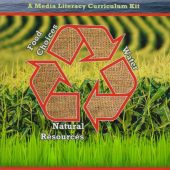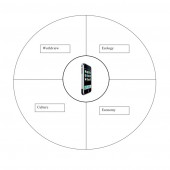
Abstract: The shift away from coal to renewable energy for electricity generation is producing environmental benefits during the climate crisis but also poses uncertainty for coal producers and others along the coal supply chain. Media representations of the coal debate shape how citizens understand and respond to it. This commentary exposes how audiences – even of pro-environmental media – reproduce dominant discourses promoted by fossil fuel corporations and reconceptualize those discourses into a Not in my Backyard (NIMBY) worldview. Critical discourse analysis helps to reveal how tensions between coal companies and renewable energy proponents are exacerbated by controlled coal messaging. Coal propaganda evokes images of a noble and reasonable energy source and places coal within a positive framework that enhances local knowledge, protection, and economic security. Conclusions point to the importance of media literacy instruction as a means for consumers to gain critical distancing strategies and broader perspectives about the climate crisis.
Continue ReadingAbstract: In recent years, media scholars and educators have made an effort to address ecological issues in their work. Ecomedia literacy adapts the principles and practices of the media literacy movement in order to prepare the public to critically engage with the relationship between media and the environment. However, this article argues that the philosophical frameworks, on which existing approaches to media literacy education are founded, are limited. The field’s reliance on traditions of constructivism and cultural studies allows learners to engage with ideas, but not things. The article argues that an ecomedia literacy that draws from speculative realism—in particular, in recognizing the reality of non-human things, emphasizing materiality, and challenging the nature/culture divide—will more effectively prepare the public to critically engage and practically respond to pressing ecological issues such as climate change.
Continue Reading
This article explores how teachers can integrate the theory and practice of media literacy education into the teaching of sustainability content. It highlights two lessons, one for elementary students on bottled water choices and one for high school students on climate change and agriculture, detailing lesson construction and execution. The article explains how praxis, the intersection of reflection and action, can be brought to life in classroom settings using contemporary media documents as codes to deepen understanding and to initiate involvement for change.
Continue Reading
As a professor of undergraduate media studies, I have attempted to bridge media education and ecoliteracy by developing an experimental media education approach called Ecomedia Literacy. The framework attempts to balance the strengths of media studies with the concerns of education for sustainability. This paper documents a specific case study in which I introduced sustainability themes into an undergraduate digital technology and culture course by using the Ecomedia Literacy framework.
Continue Reading